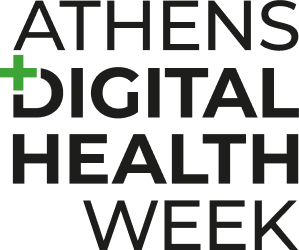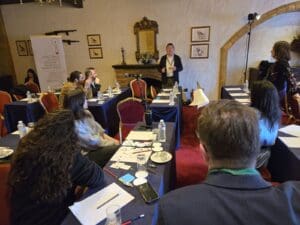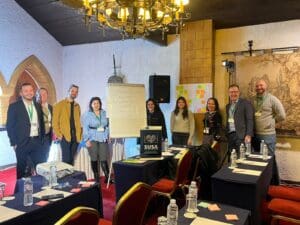An engaging workshop under the SUSA initiative took place during Athens Digital Health Week 2025, focusing on the challenges and opportunities of digital technologies in healthcare. This interactive session brought together a diverse audience, including researchers, IT professionals, healthcare providers, and policymakers, to explore the critical gaps in digital health adoption.
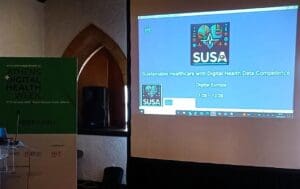 The Workshop began with a concise presentation of the SUSA project, highlighting its mission to enhance digital skills training for healthcare students and professionals. By fostering digital literacy and competency, SUSA aims to bridge the gap between technological advancements and real-world clinical practice, ensuring that future healthcare professionals are equipped to navigate an increasingly digital landscape.
The Workshop began with a concise presentation of the SUSA project, highlighting its mission to enhance digital skills training for healthcare students and professionals. By fostering digital literacy and competency, SUSA aims to bridge the gap between technological advancements and real-world clinical practice, ensuring that future healthcare professionals are equipped to navigate an increasingly digital landscape.
To deepen the discussion, the session was structured around targeted focus groups, each representing a different sector of the healthcare ecosystem. Participants were categorized by their professional backgrounds—clinicians, informatics specialists, researchers, and policymakers—and then they were encouraged to share their experiences, concerns, and insights regarding the integration of digital technologies in healthcare settings.
Key discussion points included:
- Interoperability and Data Integration: Challenges in seamless data exchange between healthcare systems and the role of standardized frameworks in enhancing interoperability.
- User Experience and Adoption Barriers: Different perspectives on the need and usability of digital health tools and what can be done to enhance engagement.
- Regulatory and Ethical Considerations: Addressing concerns around patient data security, consent management, and compliance with health data regulations.
- Education and Training Needs: Identifying gaps in digital health education for medical and healthcare students and exploring ways to integrate digital competency training into curricula.
The feedback collected during these discussions provided valuable insights into the real-world challenges of digital health implementation. Participants emphasized the need for more intuitive and user-friendly digital solutions, better alignment between policy frameworks and technological innovations, and increased efforts in training and capacity-building for healthcare professionals.
This workshop reinforced the importance of collaborative dialogue in shaping the future of digital health. By bringing together key stakeholders from multiple disciplines, we created a space for meaningful exchanges that will inform the next steps of the SUSA project and similar initiatives.
Gnomon Informatics was more than happy to be among the supporters of this workshop and looking forward to meeting again in 2026.
